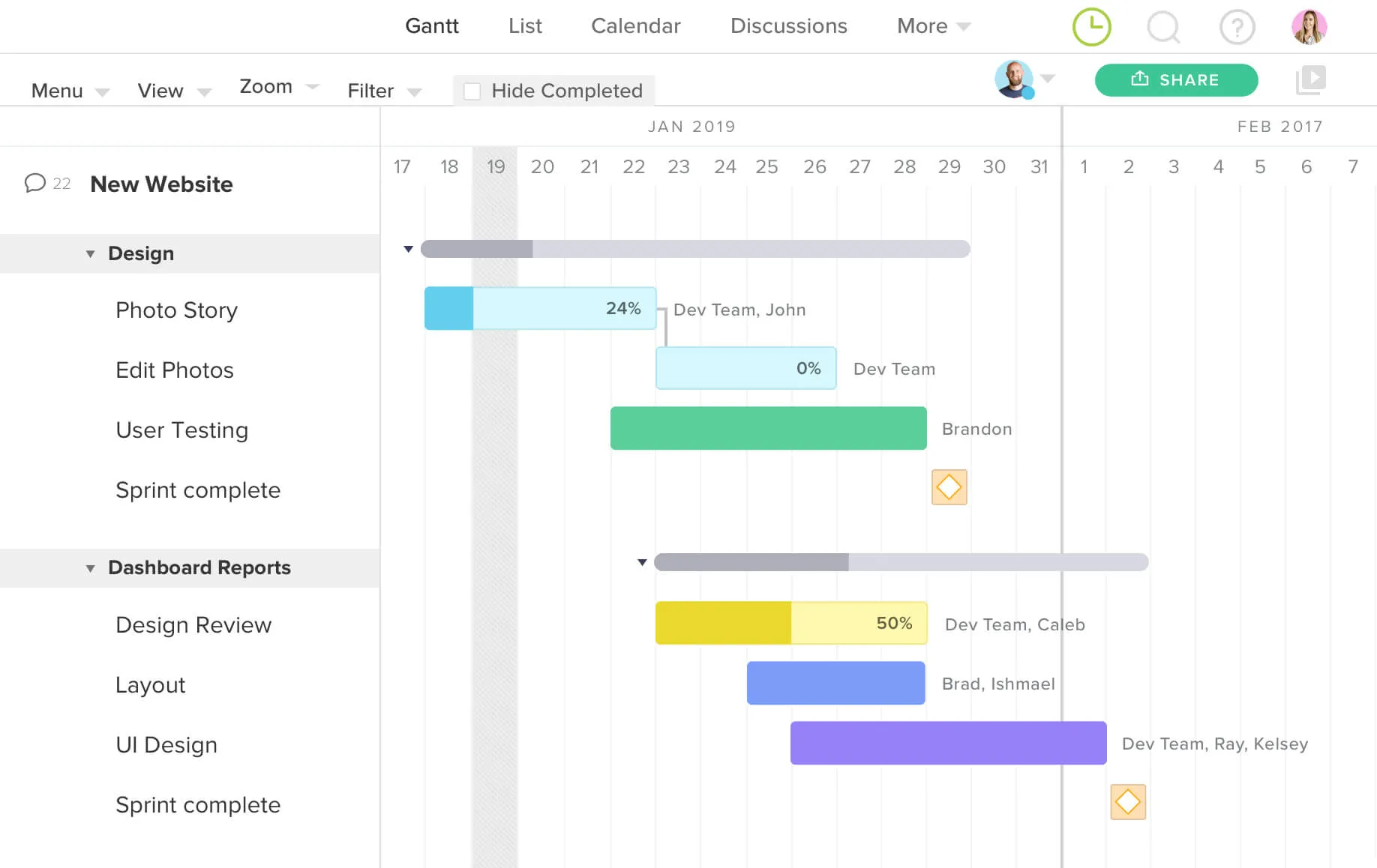Everything You Should Know to Start a Project Management Career
How to start a project management career
Most kids don’t dream about being a project manager when they grow up. After all, there’s no shiny truck, fancy uniform, or worldwide fame involved. 😂
But a rewarding career goes beyond the surface. And project management is an exciting field that’s full of opportunity and can set you up for a future in leadership.
So how do you get into project management? There’s no single formula for becoming a project manager. But there are several qualifications and certifications that can get you in the door and put you on the right path to a project management career.
Let’s start with the basics of what it takes to be a project manager.
What do project managers do?
Choosing a career is a big decision. Before you decide a project management career is right for you, it helps to understand what project managers actually do from day to day.
Here’s a glimpse at some basic responsibilities you’ll take on as a project manager:
- Create project estimates and plans
- Establish and manage the project process
- Prepare and monitor project schedules, scope, and budgets
- Manage team workload and morale
- Provide regular project status reports
- Organize and lead project meetings
- Facilitate communications
- Manage stakeholder relationships
Project management education requirements
While colleges and universities enable you to pursue a degree in project management, it’s not required. In fact, many project managers either get into project management by accident—with no formal PM education—or specialize in a specific field of interest, then get certified in project management.
The truth is, projects work differently in every company, and no single set of credentials will guarantee you a job. For instance, if you want to manage software development projects, it may pay to become Scrum-certified, while having a PMP credential might serve you well in construction project management. It all depends on the type of projects you’ll be managing.
That’s why it’s important to do your homework. Browsing project manager job listings across industries—and even career levels—can provide good direction and help you determine which certifications you’ll need to build your project management skills and resumé.
Of course, educational opportunities that enable you to come away with a certificate and extra letters added to your name aren’t the only ones that count. Any opportunity you have to learn how to be a better project manager is worth it because it shows your team and leaders you’ve got what it takes to grow.
Common project manager career paths
If you’re fresh out of college, landing a project manager gig without any real-world experience can be challenging. Knowing what kind of entry-level positions to look for will help you get your foot in the door and give you a jumpstart on your project management career.
Here are a few common career paths that can serve as stepping stones toward becoming a project manager:
- Project coordinator: If you want to jump right into a project team, this is a natural place to start. You’ll learn the project management ropes from the ground up and have a clear path to being a project manager.
- Business analyst: A business analyst gathers and documents requirements and serves as a go-between for stakeholders and the project team. You’ll typically find this role associated with technology, so it’s a great fit if you want to get into IT or software development project management.
- Software QA or test manager: A test manager oversees the QA team and plans and manages the testing process—skills that all align nicely with project management. If you just graduated, look for software tester or developer jobs as an entry point to this career path.
- Product or web designer: This is a great career option for creatives with an interest in project management. As the person actually building and delivering the product, you’ll gain inside knowledge of the people and processes that lead projects to success.
This is just a quick glimpse of opportunities to consider, but there are many paths you can follow. Research different industries—and talk to project managers about how they got where they are—to figure out what might be right for you.
Project management career outlook and salary ranges
Good news! The career outlook for project managers is very bright indeed. 😎
According to PMI’s Project Management Job Growth and Talent Gap 2017–2027 report, the talent pool isn’t keeping pace with project demand. In other words, there are lots of jobs open and not enough people to fill them. If you’re looking to get into project management, you should have plenty of options.
So how much can you expect to make as a project manager? Glassdoor puts the average project manager salary at just over $90,000, but that figure covers a wide gamut. Actual salaries will vary based on your career level, industry, company, and location. For example, salary averages range from approximately $58,000 for a project coordinator to $138,000 for a director of project management.
Our Project Manager Salary Brief gives you a general idea of how different factors can affect your pay potential.
Be a project manager with a plan
If you’re looking for a simple tool that helps you plan and manage projects with ease, we’ve got you covered.
TeamGantt makes it easy to eliminate confusion, streamline communication, and beat project deadlines. Even better, you’ll save time and energy on project setup so you can focus on doing the work that matters most.
Of course, don’t just take our word for it. Try TeamGantt for free try to see for yourself!
Lay a clear path to success with a visual plan that’s easy to understand, and keep everyone in sync with flexible workflows and team collaboration.





